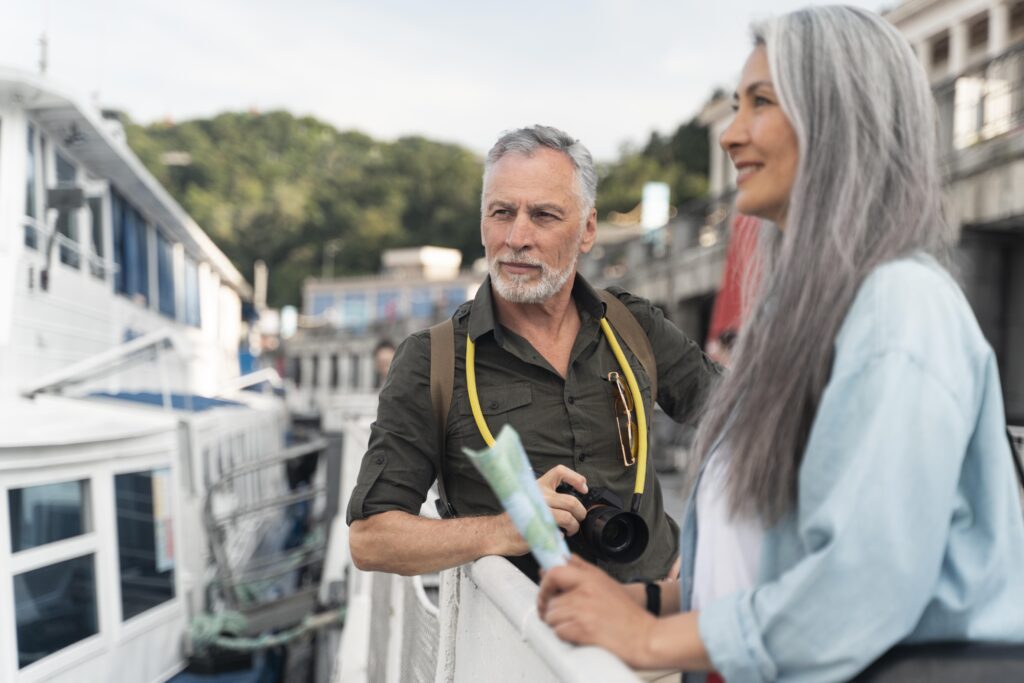Brazil is a country of vibrant culture, beautiful beaches, and warm people. However, like in any large destination, safety should be part of your travel plan, especially if it’s your first time visiting. For senior travelers, understanding how to move around safely will make your trip easier and much more enjoyable.
This guide will help you explore Brazil with confidence. From what to pack to where to go, you will find practical tips to stay safe while discovering one of the most exciting countries in South America.
1. Choose the Right Destination
Brazil is huge, and every region offers something unique. Some areas are better suited for first-time visitors who want comfort and safety.
If you prefer beaches and culture, consider Salvador, Recife, or Florianópolis. These cities have beautiful coastal views, a friendly atmosphere, and plenty of organized tours. For those who love nature and calm, Gramado, Paraty, or Ouro Preto are charming and peaceful.
Whenever possible, choose hotels located in central or tourist-friendly neighborhoods. Avoid remote areas, especially at night.
2. Stay Aware of Your Belongings
Petty theft can happen in busy areas, especially in large cities like Rio de Janeiro or São Paulo. To avoid problems:
-
Keep your bag zipped and in front of you when walking.
-
Avoid wearing expensive jewelry or gold necklaces.
-
Use simple accessories and carry only what you need for the day.
-
Leave your passport in a hotel safe and carry a photocopy instead.
-
When using your phone for photos, be discreet and look around before doing so.
These small habits make a big difference and allow you to explore without worry.
3. Transportation Tips
Public transportation can be crowded in big cities. If you are not used to it, choose safer options like registered taxis, Uber, or 99 app. Always confirm the driver’s name and car plate before entering.
For longer distances, domestic flights are comfortable and affordable. When possible, book direct flights to avoid long layovers.
If you want to explore smaller cities or beaches, many local agencies offer private transfers or group tours, which are safer and easier than renting a car.
4. Be Careful with Money
Brazil’s currency is the Real (BRL). Use credit cards or debit cards in most places, as they are accepted in restaurants, hotels, and shops.
If you need cash, withdraw from ATMs located inside malls or banks during the day. Avoid exchanging money on the street. Always count your money discreetly.
For safety, keep a small amount of cash in your pocket and the rest in a money belt or hidden pouch.
5. Health and Comfort
Brazil has a tropical climate, so staying hydrated is important. Drink bottled water and avoid street food if you have a sensitive stomach.
Always carry sunscreen, a hat, and light clothes. For seniors, the heat can be intense, especially between December and March. Try to do outdoor activities in the morning or late afternoon.
Pharmacies are easy to find, and many medications are available without prescription, but bring any essential medicine with you.
6. Internet and Communication
Free Wi-Fi is common in hotels, cafes, and airports. Download Google Maps, WhatsApp, and Google Translate before your trip.
Most Brazilians are friendly and helpful, even if they don’t speak English. Learning a few words in Portuguese can make your experience even better. Simple phrases like “Bom dia” (Good morning) and “Obrigado” (Thank you) are always appreciated.
7. Respect Local Culture
Brazilians are warm and expressive, but personal safety is always respected. Keep your valuables close in busy areas, avoid showing large amounts of money, and use good judgment when meeting new people.
At the beach, locals wear casual clothes, so there’s no need for luxury accessories. In churches or rural areas, modest clothing is more appropriate.
8. Know When and Where to Go Out
During the day, most tourist attractions are perfectly safe. At night, prefer going out with a local guide or trusted tour group. Many cities offer cultural shows and restaurants with live music, ideal for a pleasant evening.
Avoid walking alone in dark or unfamiliar areas. Ask your hotel staff for advice on which neighborhoods are best for tourists.
9. Emergency Information
The emergency number in Brazil is 190 (Police) and 192 (Ambulance). Most hotels can help you contact local authorities if necessary.
Keep copies of your passport, travel insurance, and hotel contact information in a separate bag. Having travel insurance that covers medical and theft protection is highly recommended.
10. Enjoy the Experience
Even with precautions, Brazil is a wonderful and welcoming place. Most visitors travel without any issues and leave with unforgettable memories.
Enjoy the rhythm of samba in Salvador, the sunsets in Rio de Janeiro, and the taste of fresh tropical fruit in every market. The kindness of Brazilian people will make you feel at home.
If you travel smart, stay alert, and respect local habits, your trip to Brazil will be safe, comfortable, and full of joy.

